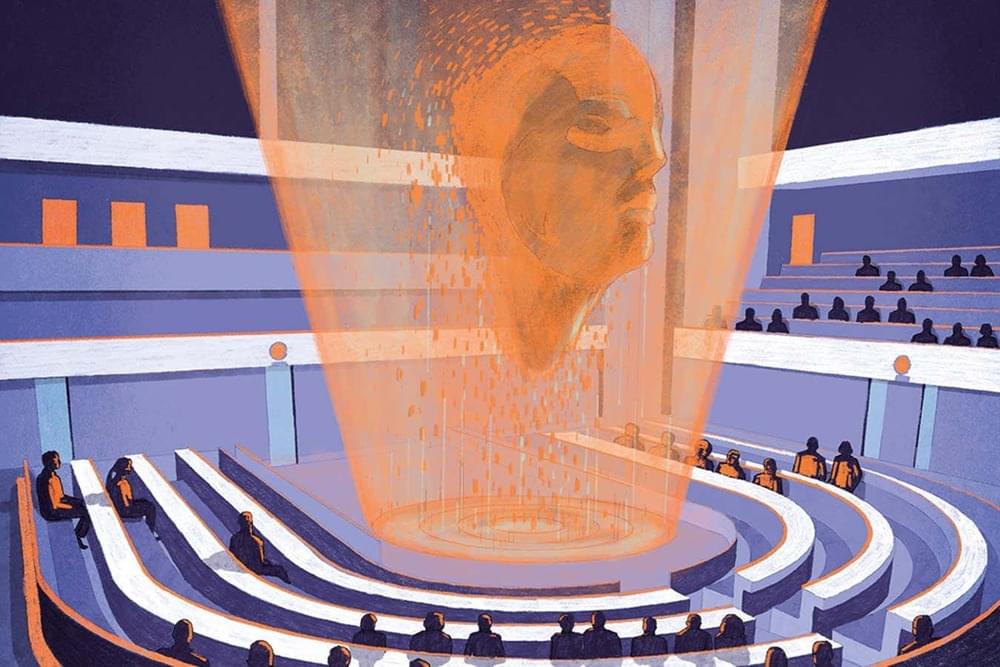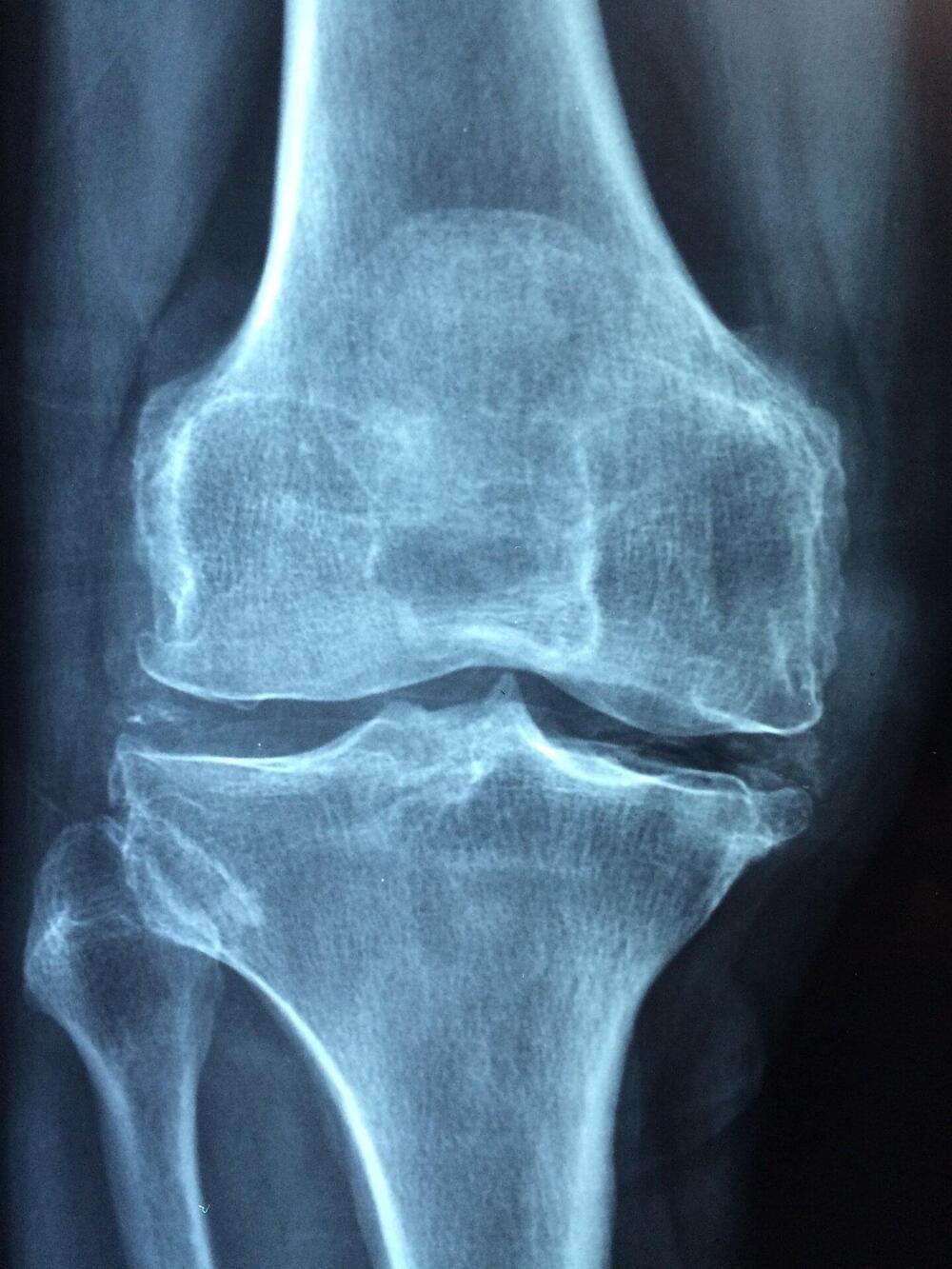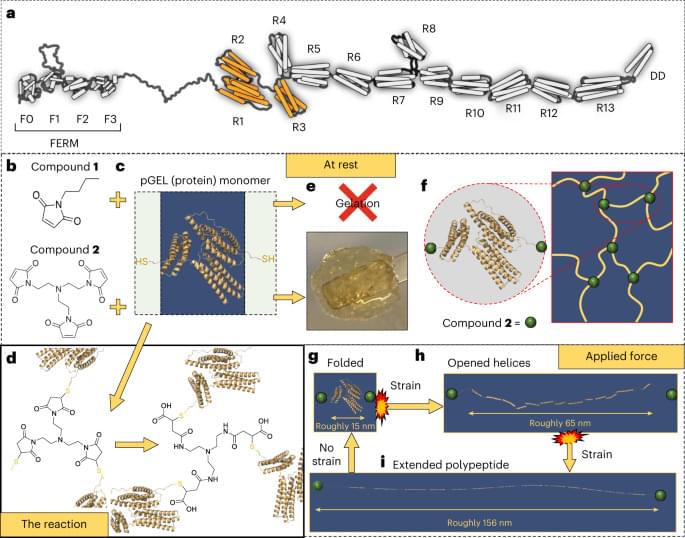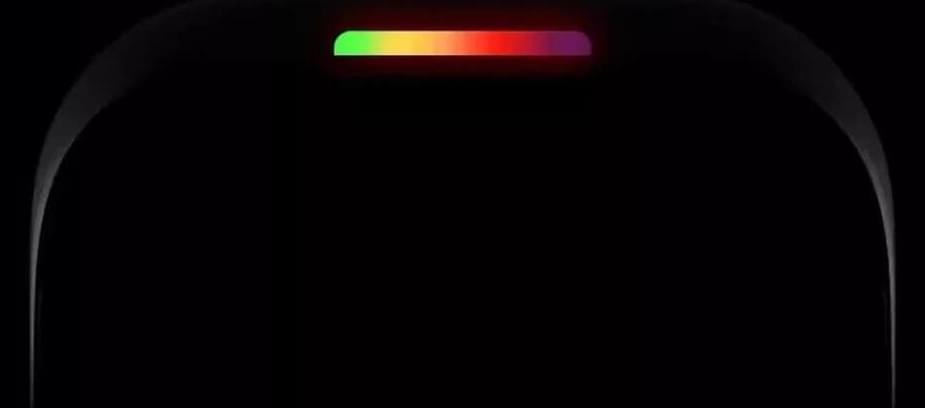Claims that superintelligent AI poses a threat to humanity are frightening, but only because they distract from the real issues today, argues Mhairi Aitken, an ethics fellow at The Alan Turing Institute.


Claims that superintelligent AI poses a threat to humanity are frightening, but only because they distract from the real issues today, argues Mhairi Aitken, an ethics fellow at The Alan Turing Institute.
A few years ago, humanoid robots were clumsy and awkward. Now several startups claim to have models almost ready to go to work in warehouses and factories.
On January 23, 2023, we celebrated the expansion of the SENS Research Foundation’s Research Center, more than doubling its capacity.
California Dignitaries Alison Hicks, Mayor of Mountain View, Peter Katz, President of the Mountain View Chamber of Commerce, Marc Berman, California State Assemblymember, and Saul Miranda, District Representative, were present to officiate the ribbon-cutting ceremony.
SENS Research Foundation was awarded a Certificate of Recognition by Senator Josh Becker, California State Senate.
Video by Vecc Schiafino.

The field of bone implants has taken incredible strides thanks to technological innovations that allow for stronger grafts that are easier to install. Yet even with these advances, there are still risks involved in such procedures. Implants can be loosened following operations, for example, which can lead to costly surgical revisions that lengthen the recovery process for patients.
New research published in Nature Biomedical Engineering from an interdisciplinary team from Northwestern Engineering’s Center for Advanced Regenerative Engineering (CARE) and Center for Physical Genomics and Engineering (CPGE) could reduce the likelihood of these painful, expensive complications.
Working at the convergence of the physical sciences, biology, surgery, and engineering, the investigators introduced the concept of surface topography-induced chromatin engineering. In a collaboration with The University of Chicago’s Russell R. Reid, MD, Ph.D., and Tong-Chuan He, MD, Ph.D., the team explained how and why to use surfaces to change patterns, validating the method in vivo.
China’s tit-for-tat trade war on technology with the US and Europe is escalating. Beijing has imposed restrictions on exporting two metals that are crucial to parts of the semiconductor, telecommunications and electric-vehicle industries. Stephen Engle reports on Bloomberg Television.
——-
Follow Bloomberg for business news & analysis, up-to-the-minute market data, features, profiles and more: http://www.bloomberg.com.
Connect with us on…
Twitter: https://twitter.com/business.
Facebook: https://www.facebook.com/bloombergbusiness.
Instagram: https://www.instagram.com/bloombergbusiness/
Accelerating Effective Treatments To Prevent And Reverse Human Age-Related Disease — Dr. Aubrey de Grey, Ph.D. — President & Chief Science Officer, Longevity Escape Velocity Foundation (LEVF)
Dr. Aubrey de Grey, Ph.D., is President & Chief Science Officer of the Longevity Escape Velocity (LEV) Foundation (https://www.levf.org/), an organization focused on proactively identifying and addressing the most challenging obstacles on the path to the widespread availability of genuinely effective treatments to prevent and reverse human age-related disease.
Dr. de Grey is internationally recognized as a visionary biomedical gerontologist who devised the Strategies for Engineered Negligible Senescence: a comprehensive set of methods to rejuvenate the human body, thereby preventing age-related ill health and mortality. He has co-founded multiple non-profit organizations – including Methuselah Foundation, SENS Research Foundation, and now LEV Foundation – to specifically enable and accelerate its development and clinical translation.
Dr. de Grey received his BA in Computer Science and Ph.D. in Biology from the University of Cambridge in 1985 and 2000, respectively. He is the author of The Mitochondrial Free Radical Theory of Aging (1999), Ending Aging (2007), and a large number of academic papers.
Dr. de Grey is a Fellow of both the Gerontological Society of America and the American Aging Association, and sits on the advisory boards of numerous scientific journals and research organizations. He is a prolific speaker who regularly presents at conferences and events world-wide.


https://youtube.com/watch?v=K-70S1oycR4&feature=share
1:33…“10 years”.
Dive into the fascinating world of aging research with this thought-provoking video. Join us as we explore the latest breakthroughs and scientific advancements on the quest to reverse aging. Discover the potential strategies, therapies, and technologies that hold promise for extending healthspan and pushing the boundaries of human longevity. Get ready to embark on an exciting journey towards understanding the future of aging reversal.
Credits/source: https://www.youtube.com/@peterdiamandis.
#Aging #ReverseAging #Longevity #Healthspan #AgingResearch #AntiAging #LongevityTechnologies #AgingReversal #FutureOfAging
Because of a peculiar effect velocity has on the appearance of the passage of time, our observations make it seem like time ran slower when the Universe was just a baby.
At least, that’s how it appears to us, at a light travel time of nearly 13 billion years away. This is called time dilation, and astrophysicist Geraint Lewis of the University of Sydney in Australia and statistician Brendon Brewer of the University of Auckland have seen it in the early Universe for the first time by studying the fluctuations of bright galaxies called quasar galaxies during the Cosmic Dawn.
Because of accelerating expansion of the Universe, they have found, we see those fluctuations unfold at a rate five times slower than if they were occurring nearby.